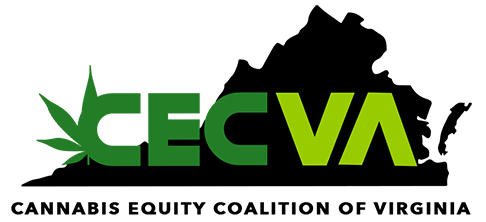We Are Open to Your Questions and Ideas
We Are Open to Your Questions and Ideas
We Are Open to Your Questions and Ideas
Legal:
- Adults 21 years and older may possess not more than one ounce of cannabis for personal use.
- Generally, adults 21 years and older may use marijuana in private residences. However, nothing prohibits the owner of a private residence from restricting the use of marijuana on its premises.
- Adults 21 and over may grow up to four plants per household (not per person), according to specified requirements (see “Home Cultivation” below).
- “Adult sharing” or transferring one ounce or less of marijuana between persons who are 21 years or older without remuneration is legal. “Adult sharing” does not include instances in which (i) marijuana is given away contemporaneously with another reciprocal transaction between the same parties; (ii) a gift of marijuana is offered or advertised in conjunction with an offer for the sale of goods or services, or (iii) a gift of marijuana is contingent upon a separate reciprocal transaction for goods or services.
Illegal:
- It remains illegal for anyone to possess more than one ounce of marijuana. Individuals found guilty of possessing more than one ounce, but not more than one pound of marijuana are subject to a civil penalty of not more than $25. Individuals found guilty of possessing more than one pound are subject to a felony.
- It remains illegal for anyone under the age of 21 to consume, purchase, or possess marijuana, or to attempt to consume, purchase or possess any amount of marijuana.
- It remains illegal to distribute or sell marijuana, and/or to possess any amount of marijuana with the intent to distribute or sell it. This prohibition applies equally to businesses, which will not be permitted to sell, “gift,” or in any other way distribute marijuana. For more information on how to obtain a license to sell marijuana in the future, see Adult-Use Cannabis Commercial Sales below.
- Existing safety measures remain in place, including prohibiting the use of marijuana while driving a motor vehicle or while being a passenger in a motor vehicle being driven; possessing marijuana on school grounds, while operating a school bus, in a motor vehicle transporting passengers for hire, or in a commercial vehicle.
- It remains illegal to consume marijuana or offer marijuana to another person in any public place.
Virginia’s marijuana legalization law ended the prohibition of simple possession of marijuana for adults 21 years and older on July 1, 2021. The law will also lay out a timeline for state agencies to seal marijuana-related criminal records. On July 1, 2021, all records of misdemeanor possession with intent to distribute marijuana arrests, charges, and convictions will be automatically sealed from public view in the Virginia State Police’s systems. This follows the sealing of simple possession of marijuana records that were completed in 2020. By July 1, 2025, after several state entities overhaul record-keeping systems, all records, including records of arrests, charges, and convictions, for simple possession of marijuana or misdemeanor possession with the intent to distribute marijuana will be automatically sealed across all state and private databases. Additionally, Virginians will have the ability to petition a court to seal all other marijuana-related misdemeanors and most marijuana-related felonies. These criminal justice reforms will modernize the Commonwealth’s criminal record-keeping systems and remove barriers for Virginians seeking employment, housing, and education.
The law will promote diverse participation in the industry by creating a Business Equity & Diversity Support Team at the Cannabis Control Authority, which will provide technical assistance to qualified applicants, do outreach to areas disproportionally impacted by marijuana prohibition, and analyze potential barriers to entry for small, women-owned, and minority-owned businesses. Additionally, the law will create a loan program to provide loans to qualified social equity cannabis licensees for the purpose of promoting business ownership and economic growth by communities that have been disproportionally impacted by the prohibition of cannabis.
Lastly, the law will create the Cannabis Equity Reinvestment Fund. This community-led fund will receive 30% of all tax profits (an estimated $26 million in the first year of sales and $128 in the fifth), which it will use to directly address the impact of economic disinvestment and disproportionate enforcement of drug laws by providing communities and individuals with resources to support local design and control of community-based responses to such impacts.
HB2312 and SB1406 are informed by public health expertise, including prevention and education measures, and commit resources to needed health services. Virginia’s adult-use legalization law created a Cannabis Public Health Advisory Council to advise the Cannabis Control Authority on all health-related matters, including with veto power over health regulations. On July 19, 2021, Governor Northam announced his appointments to the Council.
The bills include best practices to prevent youth access, including banning advertising that is attractive to youth, prohibiting stores near schools, mandating warning labels and child-prevention locks, and requiring public education campaigns. The law will also require an interagency workgroup on data collection for cannabis-related public health, safety, and equity measures. Additionally, the law will allocate 25% of marijuana tax revenue to substance abuse prevention and treatment and 5% to public health programs.
It will not be legal to sell marijuana before January 1, 2024. The law will create a new, independent political subdivision (“an authority”) to regulate the marijuana industry. While the Cannabis Control Authority can begin its work on July 1, 2021, it will take time for the authority to hire staff, write regulations, and implement equity and safety initiatives. Additionally, many of the regulatory sections of the bill must be reenacted (approved again) by the 2022 General Assembly before becoming law. For more information on the commercial market, see Adult-Use Cannabis Commercial Sales below.
To purchase cannabis for medical purposes, a patient must have both (a) an unexpired written certification issued from a board-registered practitioner and (b) a current active patient registration issued by the Board of Pharmacy. You can find more information by visiting the Department of Health Professions: Board of Pharmacy’s website.
Not as of July 20, 2021. Virginia’s medical cannabis pharmaceutical processor program is only authorized to permit five companies (one permit in each Virginia Department of Health Service Area) to cultivate, process, and dispense medical cannabis to registered patients. Four of the health service areas have a permitted pharmaceutical processor dispensing medical cannabis. The application period for the remaining permit has already closed. You can find more information about Virginia’s medical cannabis pharmaceutical processor program by visiting Department of Health Professions: Board of Pharmacy.
On July 1, 2021, the law authorized the creation of the Cannabis Control Authority (CCA), a new, independent political subdivision (“an authority”) to regulate the marijuana industry, including issuing licenses for businesses, creating health and safety guidelines, and promoting diversity within the industry. On July 19, 2021, Governor Northam appointed members of the Cannabis Control Authority’s Board of Directors. The Board, along with a CEO, will lead the creation of an adult-use marketplace. The CCA will not complete marijuana regulations or begin accepting applications for businesses before 2023.
It will not be legal to sell marijuana before 2024. Until then, it remains a crime to sell any amount of marijuana.
If the licensing provisions of the bill are reenacted (approved again) in the 2022 General Assembly session, you will likely be able to apply for a marijuana business license in 2023. More instructions and guidance for people wanting to start a marijuana business will be released before the application period begins.
Not at this time. The Cannabis Control Authority will be created this summer, and will hire staff, begin the regulatory process, and start engaging more directly with interested stakeholders over the next two years.
The law authorizing the creation of the new Cannabis Control Authority (CCA) took effect on July 1, 2021. However, the CCA will need time to hire staff and create regulations before licensing can begin. Additionally, many of the regulatory sections of the bill must be reenacted (approved again) by the 2022 General Assembly before becoming law. So, it is too early to say what the licensing process will entail.
If the licensing provisions are reenacted, you will likely be first able to apply for marijuana business licenses in 2023. More instructions and guidance for people wanting to start a marijuana business will be released prior to that date.
As written, HB2312 and SB1406 contemplate application fees to start a marijuana business. However, these fees may vary depending on the type of business and your application status. For example, individuals or companies that qualify as “social equity applicants” license will qualify for technical support and reduced or waived fees. There will be a Cannabis Equity Business Support Team within the Cannabis Control Authority that will provide guidance and support during the licensing process for applicants who qualify.
Notably, the details of the licensing process must be reenacted (approved again) by the 2022 General Assembly before becoming law. So, it is too early to say precisely what the licensing process will entail.
As written, HB2312 and SB1406 contemplate application fees to start a marijuana business. However, these fees may vary depending on the type of business and your application status. For example, individuals or companies that qualify as “social equity applicants” license will qualify for technical support and reduced or waived fees. There will be a Cannabis Equity Business Support Team within the Cannabis Control Authority that will provide guidance and support during the licensing process for applicants who qualify.
Notably, the details of the licensing process must be reenacted (approved again) by the 2022 General Assembly before becoming law. So, it is too early to say precisely what the licensing process will entail.
“Home Cultivation” became legal on July 1, 2021. Adults 21 and over may now grow up to four marijuana plants per household (not per person), for personal use. Plants can be grown only at your main place of residence.
Someone who grows plants must:
- ensure that no plant is visible from a public way;
- take precautions to prevent unauthorized access by persons younger than 21 years of age; and
- attach to each plant a legible tag that includes the person’s name, driver’s license or ID number, and a notation that the marijuana plant is being grown for personal use as authorized by law.
It remains illegal to grow more than four plants, to sell or distribute marijuana grown at home, or to manufacture marijuana concentrate from home-cultivated marijuana. Individuals who chose to do so are subject to criminal penalties.
It remains illegal to sell marijuana seeds, clones, flower, or any other part of the marijuana plant in Virginia before 2024. Although there are some states that already have legalized marijuana sales, it remains federally illegal to move marijuana across state lines.
No. The existing criminal penalties for selling or distributing marijuana, or possessing marijuana with the intent to sell or distribute, remain in effect. Individuals who sell marijuana, or who possess it with the intent to sell, are subject to misdemeanor or felony charges, depending on the amount of marijuana involved.
On July 1, 2021, “adult sharing,” or transferring one ounce or less of marijuana between persons who are 21 years or older without remuneration, became legal.
“Adult sharing” does not include instances in which:
- marijuana is given away contemporaneously with another reciprocal transaction between the same parties;
- a gift of marijuana is offered or advertised in conjunction with an offer for the sale of goods or services; or
- a gift of marijuana is contingent upon a separate reciprocal transaction for goods or services.
Email Us
Send us an email with your comment or question, or use the form on this page.

